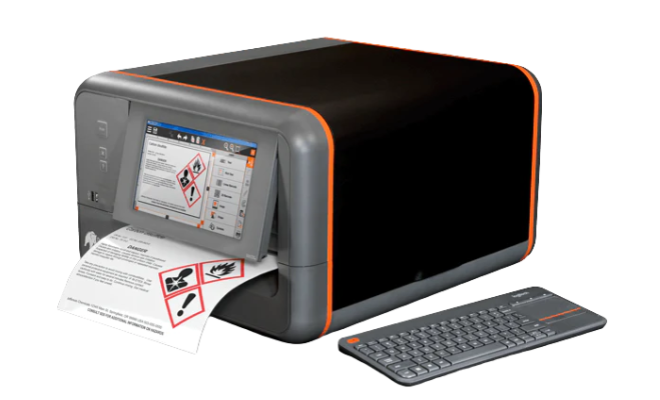
In the fast-paced world of business, efficiency is key. One often-overlooked aspect that plays a crucial role in streamlining operations is the use of commercial label printers. These devices are designed to meet the demanding labeling needs of businesses, offering a reliable and efficient solution for creating professional-grade labels. In this article, we will explore the features, benefits, and considerations associated with commercial label printers.
Understanding Commercial Label Printers
Commercial label printers are specialized devices used for printing labels on a large scale. Unlike regular printers, these machines are built to handle the unique requirements of businesses, where the need for high-quality, durable labels is essential. These printers come in various models, offering a range of features to cater to different industry needs.

Key Features of Commercial Label Printers
- High Printing Speeds: One of the standout features of commercial label printers is their impressive printing speeds. These devices can produce a large number of labels in a short amount of time, ensuring that businesses can meet tight deadlines without compromising on quality.
- Durable and Waterproof Labels: Commercial label printers use specialized materials that result in labels that are not only durable but also resistant to water, chemicals, and other environmental factors. This is especially important for industries where labels may be exposed to harsh conditions.
- Customization Options: Businesses often require labels with specific information or branding elements. Commercial label printers offer a high degree of customization, allowing users to create labels with varying sizes, colors, and designs to meet their exact specifications.
- Wide Range of Label Materials: These printers support a variety of label materials, including paper, synthetic materials, and even heat-resistant labels. This versatility makes them suitable for diverse applications across different industries.
- User-Friendly Interfaces: Despite their advanced capabilities, commercial label printers are designed with user-friendliness in mind. Intuitive interfaces and easy-to-use software ensure that even employees with minimal technical expertise can operate these devices effectively.
Considerations Before Investing
Before purchasing a commercial label printer, businesses need to consider several factors to ensure they make the right choice for their specific needs.
1. Volume Requirements
Consider the volume of labels your business requires. Different models of commercial label printers are designed to handle varying workloads. Select a printer that aligns with your business’s label production demands.
2. Label Size and Material
Evaluate the size and material specifications of the labels needed for your products. Ensure that the chosen label printer supports the dimensions and materials required for your specific application.
3. Connectivity Options
Check for connectivity options that align with your existing systems. Many commercial label printers offer USB, Ethernet, and wireless connectivity options to seamlessly integrate with your business infrastructure.
4. Cost of Consumables
Factor in the cost of consumables such as ink, labels, and ribbons. Understanding the ongoing costs associated with operating a commercial label printer is crucial for budget planning.
Conclusion
In conclusion, commercial label printers play a vital role in enhancing the efficiency and professionalism of businesses by meeting their labeling needs. With features like high-speed printing, customization options, and durable label materials, these devices offer a reliable solution for various industries. However, it is essential for businesses to carefully consider their specific requirements and choose a printer that aligns with their production demands and budget constraints. By investing in the right commercial label printer, businesses can streamline their labeling processes and contribute to overall operational success.















